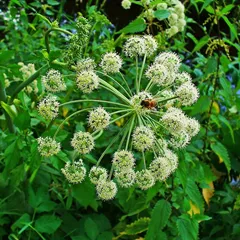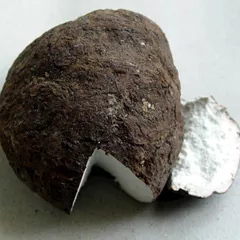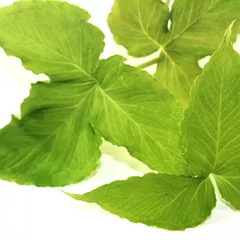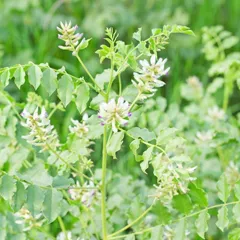Menopausal syndrome according to Chinese Medicine
The information provided here is not a replacement for a doctor. You shouldn't use it for the purpose of self-diagnosing or self-medicating but rather so you can have a more informed discussion with a professional TCM practitioner.
Climacteric syndrome, Menopause and Perimenopausal syndrome redirect here
Menopausal syndrome factsheet
Chinese name: 更年期
Pinyin name: Gēng Nián Qí
Possible causes and remedies:
Symptoms: Insomnia Hot flushes Breast lumps and eight other symptoms
Recommended formula: Ge Xia Zhu Yu Tang and two other formulas
Symptoms: Nausea Oedema Obesity and nine other symptoms
Recommended formula: Yue Ju Wan and two other formulas
Menopause means the permanent cessation of menstruation. It is not a disease in and of itself, but rather a natural life phase during which a woman transits from a reproductive stage to a non-productive one. The ovarian function declines during the menopause period, which can last between 2 to 5 years.
Some women have a smooth transition, while due to stress, overwork or diet there are an increasing amount of women who experience discomforting symptoms such as hot flashes, insomnia, night sweats, heart palpitations, anxiety, irritability, tinnitus, dizziness, vertigo, headaches, fatigue, memory loss, soreness of the limbs, hypertension, etc. One or several of these symptoms together at the time of menopause is what is called 'menopausal syndrome' or 'climacteric syndrome'.
Some women have mild symptoms, while some have very severe ones which severely impact their quality of life. The discomfort can last from a couple of weeks to decades after the periods have ceased completely. Some women regard their new status as natural and unavoidable but Chinese Medicine theory believes these are signs of imbalance that can often be treated very successfully.
From TCM perspective, the menopause syndrome is fundamentally a result of gradually decreasing of Kidney Essence, either in its Yin or Yang aspect. However as we will be see below there can also be other causes.
Please be aware that TCM herbal treatment is not in contradiction with any hormone replacement therapy (HRT), because the two methods work from very different perspectives.
As you can see below we've detailed for you the seven "patterns of disharmony" associated with menopausal syndrome. Chinese Medicine sees the body as a system, not a sum of isolated parts. A "pattern" is when the system's harmony is disrupted. It is not equivalent to a Western condition, as a matter of fact here menopausal syndrome can be explained by seven different patterns.
Each of those patterns can be treated with one or several herbal formulas. Drinking herbal infusions is the most common remedy in Chinese Medicine, together with acupuncture. It is the Chinese Medicine equivalent to drugs, apart that it's 100% natural!
In total we detail below sixteen formulas that can help treat the various patterns that cause menopausal syndrome, depending on which pattern fits your profile.
The seven "patterns of disharmony" associated with menopausal syndrome

Szechuan Lovage Roots (Chuan Xiong) is the key herb for Ge Xia Zhu Yu Tang, a formula used for Qi and Blood Stagnation
Qi and Blood Stagnation
Pulse type(s): Choppy (Se), Wiry (Xian)
Tongue color: Purple in the centre
Recommended herbal formulas: Ge Xia Zhu Yu Tang, Wen Jing Tang, Gui Zhi Fu Ling Wan
Symptoms: Insomnia Hot flushes Breast lumps Restlnessness Abdominal pain Dark colored blood High blood pressure Flooding and leaking Irregular menstruation Dark clots in menstrual blood Abdominal distention and fullness
In opposition to patterns related to Kidney Essence Deficiency, this is an Excess type of menopausal syndrome as it is due to Blood Stagnation (sometimes paired with Qi Stagnation). It often happens in Liver and it normally results from emotional factors such as anger, frustration, resentment, irritation, worry or anxiety.
According to some TCM gynecology books, women who have the most severe menopausal syndrome are often these with long history of Liver Qi and Blood Stagnation.
If the patient also suffers from Kidney Essence Deficiency at the same time, it is recommended to first treat Blood and Qi Stagnation.
The treatment principle is to invigorate Blood, move Qi, eliminate Stagnation and calm the Mind.

Atractylodes Rhizomes (Bai Zhu) is the key herb for Yue Ju Wan, a formula used for Phlegm
Phlegm
Pulse type(s): Wiry (Xian)
Tongue coating: Sticky coating
Tongue color: Red sides
Recommended herbal formulas: Yue Ju Wan, Wen Dan Tang, Ban Xia Hou Pu Tang
Symptoms: Nausea Oedema Obesity Belching Moodiness Depression Irritability Poor appetite Chest fullness Breast distention Abdominal fullness Sputum in the chest
This pattern often appears among young women with premature menopause. The symptoms are due to Phlegm or Dampness accumulating in the Lower Burner instead of the more typical decline of Kidneys Essence, normally the key cause for menopausal syndrome. As for absence of menstruation, Spleen Qi Deficiency is the fundamental reason leading to Phlegm. This is because the Spleen rules the transformation and transportation of Body Fluids. The malfunction of this Organ leads to the accumulation of these fluids and eventually they coagulate and Phlegm appears.
Sometimes there is the case of having both Phlegm and Kidney Essence Deficiency together. In this case it is suggested to first treat the Phlegm or Dampness and deal with other patterns later.
The treatment principle is to resolve Phlegm, fortify the Spleen, move Qi and eliminate Stagnation.

The Kidneys is a so-called "Zang" Organ. Learn more about the Kidneys in Chinese Medicine
Kidney Yin Deficiency
Pulse type(s): Deep (Chen), Empty (Xu), Fine (Xi), Floating (Fu)
Tongue coating: Complete absence of coating
Tongue color: Red
Recommended herbal formulas: Zuo Gui Yin, Qi Ju Di Huang Wan, Dang Gui Di Huang Yin, Dan Zhi Xiao Yao San
Symptoms: Itching Tinnitus Dry hair Dry skin Dizziness Sore back Dry mouth Sore knees Weak knees Dry throat Dry tongue Malar flush Night sweats Constipation Irritability Weak lower back Hot palms and soles
Decreasing of Kidney Essence is the fundamental cause for all menopause-related ailments. It can take the form of Kidney Yin Deficiency, Kidney Yang Deficiency or a combination of these two patterns.
The Kidneys govern the bones and generate the marrow. In case of Kidney Yin Deficiency, the Yin and Essence fails to nourish the lower parts of the body properly, therefore the lower back and knees become weak and sore. It can even result in some atrophy of the lower extremities the most severe cases. Body Fluids is a Yin elements and it dries up in case of Kidney Yin Deficiency. It is not able to moisten the body: the throat, mouth and tongue - which are located along the Kidney Channel - become dry and red. The Yin Deficiency also causes Empty Heat and thus some hot symptoms like malar flush may appear.
Emotional stress is one of the most significant causes of Kidney Yin Deficiency as a cause of menopausal syndrome, especially when the stress lasts for years before the start of the menopause. The Kidneys' functions can be greatly influenced by worry, anxiety and fear. The situation gets worse if the patients also work excessively without proper and sufficient rest. Finally, having too many children too close to each other also affects the Kidney Yin negatively.
The treatment principle is to nourish Kidney Yin, subdue Yang and clear Empty Heat with appropriate herbal formulas. A more relaxed lifestyle with reduced emotional stress is also obviously recommended.

The Kidneys is a so-called "Zang" Organ. Learn more about the Kidneys in Chinese Medicine
Kidney Yang Deficiency
Pulse type(s): Deep (Chen), Fine (Xi)
Tongue color: Pale
Recommended herbal formula: You Gui Wan
Symptoms: Chills Pale face Back pain Dizziness Depression Hot flushes Night sweats Poor appetite Sore lower back Premature aging Oedema of ankles Abdominal fullness Cold hands and feet Premature menopause Absence of menstruation Thin body lacking strength
According to Chinese Medicine, both Spleen and Kidney Yang Deficiency are interlinked reasons behind menopausal syndrome. It is because the Spleen Yang originates from the Kidney Yang so a deficiency in one will cause a deficiency in the other. In turn the Spleen supplies the Kidneys with postnatal Grain Qi and the Blood it transforms from food and drinks.
When the Spleen Yang is deficient due to Kidney Yang Deficiency, its ability to generate sufficient grain Qi, Blood and Post-Heaven Essence decreases. This means the Kidneys have no other option than to consume the reserves of Pre-Heaven Essence they store. Essence is a critical ingredient to generate periods. If the situation last for a while, the Kidneys' Essence gets depleted and premature menopause and premature aging follow.
The treatment principle is to tonify and warm the Kidneys, tonify Yang, strengthen the Spleen and warm the Centre.

The Kidneys is a so-called "Zang" Organ. Learn more about the Kidneys in Chinese Medicine
Kidney and Liver Yin Deficiency
Pulse type(s): Empty (Xu), Wiry (Xian), Floating (Fu)
Tongue coating: Complete absence of coating
Tongue color: Red
Recommended herbal formulas: Qi Ju Di Huang Wan, Liu Wei Di Huang Wan, Gui Shao Di Huang Tang, Zuo Gui Yin
Symptoms: Tics Tinnitus Dry eyes Dry skin Dizziness Sore back Headaches Amenorrhea Joint pain Hot flushes Night sweats Blurred vision Spontaneous and nocturnal emissions
The symptoms under this pattern are very similar to those under Kidney Yin Deficiency but the condition is much more severe. The Kidney Yin is so Deficient that it dries up the Liver Yin.
Prolonged Yin Deficiency leads to Liver Yang Rising, as the Yang can not be kept under control. Sometime it can even agitate Liver Wind Internally. Then symptoms such as dizziness, tics, headache and tinnitus appear. Blurred vision is also a typical sign, as Liver opens into the eyes. The Liver houses the Ethereal Soul which, with that condition, has no place to rest at night; hence the insomnia and dream-disturbed sleep.
Deficiency of both Kidney and Liver Yin together can cause spontaneous emissions as both Organs can not store Essence. Premature graying or loss of hair are other consequences.
This pattern often occurs due to excessive exercise or sex, prolonged physical exertion without proper rest, Blood Deficiency such as chronic menorrhagia or prolonged emotional stress such as anger, resentment or frustration.
The treatment principle is to nourish both Kidney and Liver Yin, subdue Liver Yang, calm the Mind and settle the Ethereal Soul.

The Heart is a so-called "Zang" Organ. Learn more about the Heart in Chinese Medicine
Disharmony between Heart and Kidneys
Pulse type(s): Rapid (Shu), Empty (Xu), Fine (Xi), Floating (Fu)
Tongue color: Red
Recommended herbal formulas: Tian Wang Bu Xin Dan, Liu Wei Di Huang Wan
Symptoms: Anxiety Tinnitus Insomnia Dizziness Dry mouth Dry throat Dry stools Poor memory Hot flushes Malar flush Palpitations Night sweats Constipation Restlessness Blurred vision Weakness and aching in the knees Soreness and weakness in the lower back
This pattern is sometimes not listed as a separate pattern under menopausal syndrome by many TCM gynecology books, because it is another variation of Kidney Yin Deficiency with Empty Heart Heat.
Emotional stress is one of the most critical reasons leading to menopausal syndrome, especially when the high level of stress lasts for a long period of time. The situation is made worse if the patient also overworks and is exhausted as a result. Worry, fear and anxiety harm the Kidneys and result in its Yin Deficiency, which can further deplete Heart Yin and cause Heart Empty Heat. Because Heart houses the Mind, there are Heart related symptoms such as palpitations, mental restlessness or poor memory.
The treatment principle is to nourish Kidney Yin, calm the Mind and clear Empty Heat.

The Kidneys is a so-called "Zang" Organ. Learn more about the Kidneys in Chinese Medicine
Deficiency of both the Kidney Yin and Yang
Pulse type(s): Rapid (Shu), Empty (Xu), Fine (Xi), Floating (Fu)
Tongue color: Red
Recommended herbal formulas: Er Xian Tang, Er Zhi Wan
Symptoms: Chills Tinnitus Back pain Dizziness Dry throat Hot flushes Night sweats Frequent urination Cold hands and feet Sore and weak limbs
The fundamentally reason for menopausal syndrome is due to Kidney Essence decreasing. It can take the form of Kidney Yin or Yang Deficiency or the combination of these two. The combined pattern is actually quite common among women over 40s. It is more the rule than the exception.
Depending on the predominant type (i.e. Yin or Yang Deficiency), the tongue color will be red (for Yin Deficiency) or pale (for Yang Deficiency). The pulse can be Floating-Empty or Fine-Rapid if Yin Deficiency predominates or Weak-Deep if Yang Deficiency predominates.
Patients can be given two type of herbal formulas simultaneously to treat this combined pattern but each with a reduced dosage. For example, a Yang-nourishing formula can be given in the morning and a Yin-nourishing one for the evening. The volume should be adapted based on the predominant type: a higher dose of Yin-nourishing formula if Yin-Deficiency is more severe and vice versa.
The treatment principle is to nourish the Kidneys, nourish Yin, gently tonify Yang and calm the Mind.
Read more about Deficiency of both the Kidney Yin and Yang here
The sixteen herbal formulas that might help with menopausal syndrome



The top herbs in Zuo Gui Yin are Prepared Rehmannia (Shu Di huang), Cornelian Cherries (Shan Zhu Yu) and Goji Berries (Gou Qi Zi)
Zuo Gui Yin
Source date: 1624 AD
Number of ingredients: 6 herbs
Key actions: Nourishes the Yin. Tonifies the Kidneys.
Why might Zuo Gui Yin help with menopausal syndrome?
Because it is a formula often recommended to help with the patterns Kidney Yin Deficiency and Kidney and Liver Yin Deficiency which are sometimes associated with menopausal syndrome. If any of these patterns look like something you might suffer from, this formula might help (although please seek confirmation with a professional practitioner beforehand).



The top herbs in Qi Ju Di Huang Wan are Prepared Rehmannia (Shu Di huang), Cornelian Cherries (Shan Zhu Yu) and Yam (Shan Yao)
Qi Ju Di Huang Wan
Source date: 1350 AD
Number of ingredients: 8 herbs
Key actions: Nourishes Kidney and Liver Yin. Improves vision.
Why might Qi Ju Di Huang Wan help with menopausal syndrome?
Because it is a formula often recommended to help with the patterns Kidney Yin Deficiency and Kidney and Liver Yin Deficiency which are sometimes associated with menopausal syndrome. If any of these patterns look like something you might suffer from, this formula might help (although please seek confirmation with a professional practitioner beforehand).



The top herbs in Liu Wei Di Huang Wan are Prepared Rehmannia (Shu Di huang), Cornelian Cherries (Shan Zhu Yu) and Yam (Shan Yao)
Liu Wei Di Huang Wan
Source date: 1119 AD
Number of ingredients: 6 herbs
Key actions: Enriches the yin and nourishes the Kidneys.
Why might Liu Wei Di Huang Wan help with menopausal syndrome?
Because it is a formula often recommended to help with the patterns Kidney and Liver Yin Deficiency and Disharmony between Heart and Kidneys which are sometimes associated with menopausal syndrome. If any of these patterns look like something you might suffer from, this formula might help (although please seek confirmation with a professional practitioner beforehand).



The top herbs in Ge Xia Zhu Yu Tang are Szechuan Lovage Roots (Chuan Xiong), Safflowers (Hong Hua) and Peach Kernels (Tao Ren)
Ge Xia Zhu Yu Tang
Source date: 1830 AD
Number of ingredients: 12 herbs
Key actions: Invigorates Blood. Eliminates Blood Stagnation below the diaphragm. Stops pain. Promotes Qi movement.
Why might Ge Xia Zhu Yu Tang help with menopausal syndrome?
Because it is a formula often recommended to help treat Qi and Blood Stagnation, a pattern sometimes associated with menopausal syndrome. If it looks like you might suffer from Qi and Blood Stagnation, this formula might help (although please seek confirmation with a professional practitioner beforehand).



The top herbs in Yue Ju Wan are Atractylodes Rhizomes (Bai Zhu), Szechuan Lovage Roots (Chuan Xiong) and Coco-Grass Rhizomes (Xiang Fu)
Yue Ju Wan
Source date: 1481 AD
Number of ingredients: 5 herbs
Key actions: Promotes the movement of Qi. Releases all types of Stagnation (Qi, Blood, Phlegm, Fire, Food and Dampness).
Why might Yue Ju Wan help with menopausal syndrome?
Because it is a formula often recommended to help treat Phlegm, a pattern sometimes associated with menopausal syndrome. If it looks like you might suffer from Phlegm, this formula might help (although please seek confirmation with a professional practitioner beforehand).



The top herbs in You Gui Wan are Prepared Aconite (Zhi Fu Zi), Cinnamon Bark (Rou Gui) and Deer Antler Glue (Lu Jiao Jiao)
You Gui Wan
Source date: 1624 AD
Number of ingredients: 10 herbs
Key actions: Warms and tonifies Kidney Yang. Replenishes the Essence. Tonifies the Blood.
Why might You Gui Wan help with menopausal syndrome?
Because it is a formula often recommended to help treat Kidney Yang Deficiency, a pattern sometimes associated with menopausal syndrome. If it looks like you might suffer from Kidney Yang Deficiency, this formula might help (although please seek confirmation with a professional practitioner beforehand).



The top herbs in Er Xian Tang are Curculigo Rhizomes (Xian Mao), Epimedium Herbs (Yin Yang Huo) and Morinda Roots (Ba Ji Tian)
Er Xian Tang
Source date: 1950 AD
Number of ingredients: 6 herbs
Key actions: Nourishes Yin and tonifies Yang of the Kidneys. Clears Empty Heat. Regulates the Directing and Penetrating Vessels.
Why might Er Xian Tang help with menopausal syndrome?
Because it is a formula often recommended to help treat Deficiency of both the Kidney Yin and Yang, a pattern sometimes associated with menopausal syndrome. If it looks like you might suffer from Deficiency of both the Kidney Yin and Yang, this formula might help (although please seek confirmation with a professional practitioner beforehand).



The top herbs in Wen Jing Tang are Cinnamon Twigs (Gui Zhi), Evodia Fruits (Wu Zhu Yu) and Dong Quai (Dang Gui)
Wen Jing Tang
Source date: 220 AD
Number of ingredients: 12 herbs
Key actions: Warms the Uterus and vessels. Nourishes Blood. Dispels Cold. Dispels Blood Stagnation.
Why might Wen Jing Tang help with menopausal syndrome?
Because it is a formula often recommended to help treat Qi and Blood Stagnation, a pattern sometimes associated with menopausal syndrome. If it looks like you might suffer from Qi and Blood Stagnation, this formula might help (although please seek confirmation with a professional practitioner beforehand).



The top herbs in Gui Zhi Fu Ling Wan are Cinnamon Twigs (Gui Zhi), Poria-Cocos Mushrooms (Fu Ling) and Red Peony Roots (Chi Shao)
Gui Zhi Fu Ling Wan
Source date: 220 AD
Number of ingredients: 5 herbs
Key actions: Promotes Blood and lymphatic circulation, thus eleminates Blood Stagnation. Softens and resolves hard lumps such as cysts and fibroids.
Why might Gui Zhi Fu Ling Wan help with menopausal syndrome?
Because it is a formula often recommended to help treat Qi and Blood Stagnation, a pattern sometimes associated with menopausal syndrome. If it looks like you might suffer from Qi and Blood Stagnation, this formula might help (although please seek confirmation with a professional practitioner beforehand).
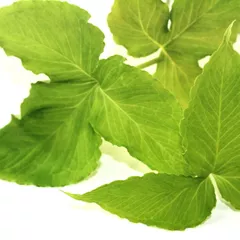
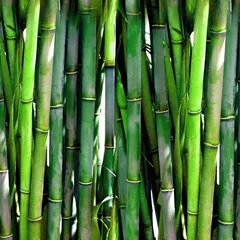
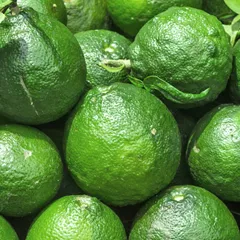
The top herbs in Wen Dan Tang are Crow-Dipper Rhizomes (Ban Xia), Bamboo Shavings (Zhu Ru) and Immature Bitter Oranges (Zhi Shi)
Wen Dan Tang
Source date: 1174 AD
Number of ingredients: 8 herbs
Key actions: Clears Phlegm. Clears Gallbladder. Regulates Qi. Harmonizes the Stomach.
Why might Wen Dan Tang help with menopausal syndrome?
Because it is a formula often recommended to help treat Phlegm, a pattern sometimes associated with menopausal syndrome. If it looks like you might suffer from Phlegm, this formula might help (although please seek confirmation with a professional practitioner beforehand).



The top herbs in Ban Xia Hou Pu Tang are Crow-Dipper Rhizomes (Ban Xia), Houpu Magnolia Bark (Hou Pu) and Poria-Cocos Mushrooms (Fu Ling)
Ban Xia Hou Pu Tang
Source date: 220 AD
Number of ingredients: 5 herbs
Key actions: Regulates the flow of Qi, treats esophageal spasm. Clears Phlegm.
Why might Ban Xia Hou Pu Tang help with menopausal syndrome?
Because it is a formula often recommended to help treat Phlegm, a pattern sometimes associated with menopausal syndrome. If it looks like you might suffer from Phlegm, this formula might help (although please seek confirmation with a professional practitioner beforehand).



The top herbs in Dang Gui Di Huang Yin are Dong Quai (Dang Gui), Prepared Rehmannia (Shu Di huang) and Cornelian Cherries (Shan Zhu Yu)
Dang Gui Di Huang Yin
Source date: 1640 AD
Number of ingredients: 7 herbs
Key actions: Nourishes Blood. Tonifies Kidney and Liver Yin. Regulates the menstrual cycle.
Why might Dang Gui Di Huang Yin help with menopausal syndrome?
Because it is a formula often recommended to help treat Kidney Yin Deficiency, a pattern sometimes associated with menopausal syndrome. If it looks like you might suffer from Kidney Yin Deficiency, this formula might help (although please seek confirmation with a professional practitioner beforehand).



The top herbs in Dan Zhi Xiao Yao San are Mudan Peony Bark (Mu Dan Pi), Cape Jasmine Fruits (Zhi Zi) and Bupleurum Roots (Chai Hu)
Dan Zhi Xiao Yao San
Source date: 2002 AD
Number of ingredients: 8 herbs
Key actions: Clears Liver Fire from Stagnant Liver Qi.
Why might Dan Zhi Xiao Yao San help with menopausal syndrome?
Because it is a formula often recommended to help treat Kidney Yin Deficiency, a pattern sometimes associated with menopausal syndrome. If it looks like you might suffer from Kidney Yin Deficiency, this formula might help (although please seek confirmation with a professional practitioner beforehand).



The top herbs in Gui Shao Di Huang Tang are Prepared Rehmannia (Shu Di huang), Yam (Shan Yao) and Cornelian Cherries (Shan Zhu Yu)
Gui Shao Di Huang Tang
Why might Gui Shao Di Huang Tang help with menopausal syndrome?
Because it is a formula often recommended to help treat Kidney and Liver Yin Deficiency, a pattern sometimes associated with menopausal syndrome. If it looks like you might suffer from Kidney and Liver Yin Deficiency, this formula might help (although please seek confirmation with a professional practitioner beforehand).
Tian Wang Bu Xin Dan
Source date: 16th century
Number of ingredients: 14 herbs
Key actions: Enriches the Yin. Nourishes the Blood. Clears Heat. Calms the Mind.
Why might Tian Wang Bu Xin Dan help with menopausal syndrome?
Because it is a formula often recommended to help treat Disharmony between Heart and Kidneys, a pattern sometimes associated with menopausal syndrome. If it looks like you might suffer from Disharmony between Heart and Kidneys, this formula might help (although please seek confirmation with a professional practitioner beforehand).



The top herbs in Er Zhi Wan are Glossy Privet Fruits (Nu Zhen Zi) and Eclipta Herbs (Mo han lian)
Er Zhi Wan
Source date: 1534 AD
Number of ingredients: 2 herbs
Key actions: Nourishes Liver Yin. Nourishes Kidney Yin.
Why might Er Zhi Wan help with menopausal syndrome?
Because it is a formula often recommended to help treat Deficiency of both the Kidney Yin and Yang, a pattern sometimes associated with menopausal syndrome. If it looks like you might suffer from Deficiency of both the Kidney Yin and Yang, this formula might help (although please seek confirmation with a professional practitioner beforehand).
Symptoms related to menopausal syndrome
Hot flushes Dizziness Night sweats Tinnitus Dry throat Insomnia Abdominal fullness Irritability Poor appetite Depression




